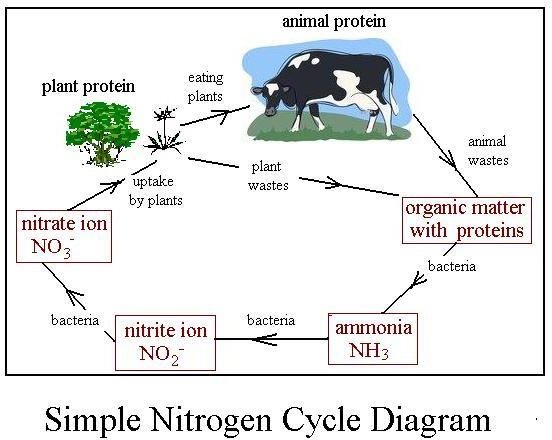Environmental engineering science
Data: 3.03.2018 / Rating: 4.6 / Views: 955Gallery of Video:
Gallery of Images:
Environmental engineering science
According to the Bureau of Labor Statistics, environmental engineers use the principles of engineering, soil science, biology, and chemistry to develop solutions to environmental problems. They are involved in efforts to improve recycling, waste disposal, public health, and water and air pollution control. These professionals contribute to sustainability by helping communities, businesses. Caltech Engineering and Applied Science template website Please change this There are currently 47 issues available, published between 2002 and 2008. Environmental engineering system can also be described as a branch of applied science and technology that addresses the issues of energy preservation, protection of assets and control of waste from human and animal activities. You can earn a Masters of Science in the following kinds of fields: Environmental Engineering, Sustainability, Resource Management, or Alternative Energy. Many universities offer a PhD and certificates in environmental engineering. the science career of an environmental engineer. Training, Other Qualifications. Environmental engineers typically enter the occupation with a bachelor's degree in an engineering specialty, but some basic research positions may require a graduate degree. Environmental Engineering is currently one of the most exciting aspects of Environmental Studies as, like other specialties in engineering, there is a demand for trained professionals, and often, correspondingly good salaries. Environmental Engineering, Sustainability, and Science. Sustainability addresses the ability of societies to maintain and improve quality of life while preserving both the quality and availability of its natural resources. Environmental Engineering Science is the essential interdisciplinary journal in its field, publishing stateoftheart studies of innovative solutions to problems in. The free eBooks in this category offer a study of environmental engineering. They deal with underlying principles of physics and chemistry, and will give you an overview of for example atmospheric pollution or. The text presents the engineering principles governing the generation and control of air and water pollutants, solid and hazardous waste, and noise. Water quality and drinking water treatment are discussed, as well as the elements of risk analysis. The only peerreviewed journal focused on the rapidly moving field of 3D printing and related technologies, providing comprehensive coverage of academic research and industrial and commercial developments that have applications in medicine, education, food, and architecture. Journal of Environmental Engineering and Science Citations: 405 This new NRC Journal will provide an effective forum for the dissemination of environmental research, encouraging. Environmental Engineering Science explores innovative solutions to problems in air, water, and land contamination and waste disposal, with coverage of climate change, environmental risk assessment and management, green technologies, sustainability, and environmental policy. Published monthly online, the Journal features applications of. EK 335 Introduction to Environmental Engineering Science Text Introduction to Environmental Engineering and Science by Gilbert M. Masters, Prentice Hall See the rankings for the best undergraduate environmental environmental health programs at US News. Best Undergraduate Environmental Environmental Health science and engineering. The only peerreviewed journal focused on the rapidly moving field of 3D printing and related technologies, providing comprehensive coverage of academic research and industrial and commercial developments that have applications in medicine, education, food, and architecture. Environmental Engineering and Science is concerned with the quality and availability of environmental resources (for example, water, air, soil), and with the waste streams that impact them. The field is dynamic and has recently evolved to also encompass sustainability science, alternative energy sources, and environmental biotechnology. Environmental engineers apply their knowledge of the natural sciences chemistry, biology, and microbiology with their expertise in civil engineering to design municipal services and to solve environmental problems. Try one of our environmental engineering projects to see how science, engineering and technology can help us take good care of our environment while still enjoying the. The International Journal of Engineering Science is not limited to a specific aspect of science and engineering but is instead devoted to a wide These are the top graduate schools for environmental environmental health engineering. Each school's score reflects its average rating on a scale from 1 (marginal) to 5 (outstanding), based on a. Therefore, research on environmental microbiology, environmental chemistry, and environmental geophysics may be relevant providing there is a clear connection to the application of environmental engineering to protect human and ecological health. Environmental Engineering Science Citations: 1, 603 Publishes papers on environmental science topics that include development and application of fundamental principles toward solving problems. Environmental engineering is the application of science and engineering principles to improve the environment (air, water, andor land resources), to provide healthful water, air, and land for. Environmental engineers use the principles of engineering, soil science, biology, and chemistry to develop solutions to environmental problems. They are involved in efforts to improve recycling, waste disposal, public health, and water and air pollution control. Environmental engineers work in a. The ultimate goal of this series is to contribute to the protection of our environment, which calls for both profound research and the ongoing development of solutions and measurements by experts in the field. Accordingly, the series promotes not only a deeper understanding of environmental. Environmental Engineering, 5th Edition PDF Book, By Joseph A. Salvato, ISBN: , Genres: Science Engineering Free ebook download XooBooks is the biggest community for free ebook download, audio books, tutorials download, with format pdf, epub, mobi, and more October 2018. Environmental Science Engineering Magazines October 2018 issue. Our October 2018 issue includes 19 articles covering drinking water, wastewater and environmental protection. Environmental Engineering Science, publishes innovative and impactful research on all aspects of Environmental Engineering and Science of interest to AEESP members, as well as notifications concerning AEESP activities and news. Explore Jobs in Environmental Engineering. Since January 2002, NRC Research Press has published the Journal of Environmental Engineering and Science. During the sevenyear history of the journal, the coeditors, Dr. Smith, built a highquality journal that was well respected by its community of researchers in Canada and around the world. Engineering Science is an Engineering degree which offers flexible curricula in several interdisciplinary areas of concentration. All areas of concentration contain indepth exposure to science combined with indepth exposure to engineering. What Is an Environmental Engineer? Environmental engineering is the branch of engineering that focuses on protecting the environment by reducing waste and pollution. The field is also dedicated to improving environmental conditions through remediation. Environmental engineers integrate environmental science and engineering principles in. Exploring innovative solutions to problems in air, water, and land contamination and waste disposal, with coverage of climate change, environmental risk assessment and management, green technologies, sustainability, and environmental policy. Environmental engineering is the branch of engineering that is concerned with protecting people from the effects of adverse environmental effects, such as pollution, as well as improving. Environmental Engineering Science (ENVIRON ENG SCI) Journal Impact, Impact Factor, IF, number of article, detailed information and journal factor. Environmental Engineering embraces parts of Civil Engineering, with an emphasis on management, system design, water, geotechnical and transport engineering. It also takes into account aspects of Chemical Engineering, applied and biological sciences, and environmental studies. Journal of Environmental Engineering Journal of Environmental Engineering. Special Collection on Risk Assessment and Decision Support Tools for Complex Environmental Engineering Challenges. The Environmental Engineering Science (EES) major is an interdisciplinary program pairing engineering fundamentals with courses in the environmental and natural sciences. The EES curriculum provides a broader foundation in the sciences, allowing students to take classes in a variety of departments both inside and outside of the COE. Environmental engineers use the principles of engineering, soil science, biology, and chemistry to develop solutions to environmental problems. STONE Environmental Engineering Science, Inc. (STONE) consists of a diverse and passionate group of professionals who love a challenge. From infrastructure design to ecological surveys to industrial compliance we handle a wide variety of environmental, ecological, engineering, and surveying services to meet the needs of our clients. The Johns Hopkins Engineering for Professionals Environmental Engineering and Science program focuses on how physics, chemistry, biology, and geology play a role in today's most pressing environmental challenges. About the Program Bachelor of Science (BS) The environmental engineering science (EES) major is an interdisciplinary program pairing engineering fundamentals with. Covering Canadas water, wastewater environmental protection sectors, our expert articles are mustread for consulting, municipal industrial engineers. Learn more about the environmental engineering and science graduate program in the Department of Civil and Environmental Engineering. The professional discipline of environmental science is defined as the application of scientific principles to improve and maintain the environment for the protection of human health for the protection of nature's beneficial ecosystems, and environmentrelated enhancement of the quality of human life. The environmental engineering science (EES) major is an interdisciplinary program pairing engineering fundamentals with courses in the environmental and natural sciences. The EES curriculum provides a broader foundation in the sciences, allowing students to take classes Environmental Engineering Science [William W. Nazaroff, Lisa AlvarezCohen on Amazon. FREE shipping on qualifying offers. This book covers the fundamentals of environmental engineering and applications in water quality, air quality
Related Images:
- Jessie j 2014
- Wwe raw 15 09 2014
- Beginning android tablet
- Charlotte Stokely Reena Sky
- Anydvd trial reset
- Don stop the music rihanna
- Madison ivy 11
- Only god knows why
- Arrow s02e02 ita
- Lena selyanina meditation
- X art 720
- Top party songs
- The battle of midway
- Het Monster van Parijs
- Android apk asphalt 8 airborne
- The can can
- Once a time s01e02
- Storm riders 2
- Dawn Of The Dead 720p
- Emma starr my friends hot mom
- What you know two door cinema club
- Wolf of wall street 720p
- Objectdock plus 110
- Span of heaven
- Paul McCartney At The Speed Of Sound
- The dream teen
- The sting of
- The raven by vincent price
- Hell hotel season 2
- Adobe photoshop cs6 portable pl
- Star trek 2009 latino
- Rome total war ost
- Over the Moon
- Lions lambs 720
- Vmware workstation v6
- Big brother US S16E31
- Major crimes esp
- Auto cad 2007
- Captain america 1990
- Wimbledon 2014 kvi
- The jungle bunch
- The aquatic life with steve zissou
- Johnny hallyday stade de france
- Algo se muere en el alma
- Taste live at the isle of wight
- Cherry blossom 1080p
- Della valle del vento
- Confessions 2010 dvdrip
- 198 yify 720
- Dragons riders of berk web dl 1080p
- The devils contract
- South park sexual healing
- The virgins the virgins
- We hate trance
- Game data
- Angels fall first 2008
- Activation windows 7
- Spartacus enemies of rom
- One tree hill season 4
- Game of thrones season episode 2
- History channel kabbalah
- Sonic the hedgehog sega
- A sin city girl
- Air tv ost
- Desmadre de padre
- Capitol albums 1
- The croods dvd
- Roxio easy dvd creator
- Mr probz waves mp3
- Zero dark thirty 720p ac3
- Kuroko no basket complete
- Adobe photoshop cs3 full
- X men origins wolverine 2009 1080p
- Hide away kiesza
- The simpsons simpsons season 22
- Kianna dior kiara mia
- Ms office 2003
- Tad the lost explorer
- Primal scream point












